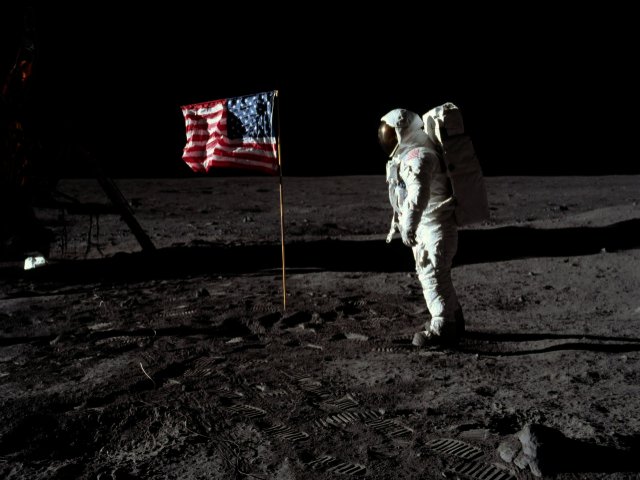NASA-funded study says humans could build base on Moon in 10 years
By Robin-Leigh Chetty 21 July 2015 | Categories: news
The frequency with which NASA launched missions into space has dipped significantly since the 1960s and 70s, with cost being the most significant factor. In recent years, companies like SpaceX, have shown that travel outside of Earth's orbit can still be achieved for a relatively smaller amount of money. To this end, a new study, co-funded by NASA and conducted by the NextGen Space estimated that humans can once again send missions to the Moon within the next five to seven years. Furthermore, it also believes a Moon-base can be installed within the 10 to 12 years.
Ambitious as it sounds, NextGen believes that such missions can be reduced by an estimated factor of 10. It references the current system employed by the International Space Station, which utilises partnerships with private organisations like SpaceX, Orbital ATK and the United Launch Alliance.
According to NextGen's study, NASA receives an estimated $4 billion per year to operate, but this number can be significantly reduced by adopting the services of the aforementioned private organisations. To put NextGen's findings in perspective, a company like SpaceX currently charges NASA an estimated $4 750 per kilogram sent into space (rocket excluded). While this figure may seem higher, it is far cheaper than it was in the Apollo-era, where each kilogram sent into space cost roughly $46 000 to $60 000.
As such, NextGen has laid out a potential roadmap for NASA's space program, and return to the Moon. According to their study, a robotically-aided return mission could happen as soon as 2017, provided NASA adopted the cheaper privatised option. Furthermore, robotic Rovers could map both of the Lunar poles by 2018, with a construction on a permanent base on the Moon's surface by 2021.
Image courtesy of Reddit.
Most Read Articles

Have Your Say
What new tech or developments are you most anticipating this year?



